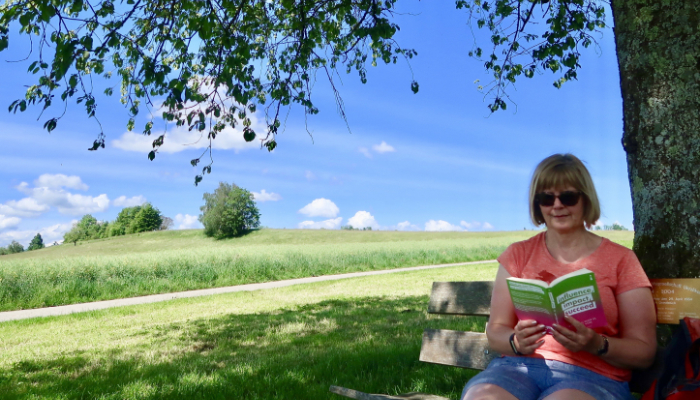I can’t remember a time when I couldn’t read. My older sister says she taught me to read as soon as she learned, which would mean I was not yet three years old when the mysteries of the written word began to be revealed to me.
Whether or not that’s true – and you and I know that early memories are far from reliable – I do remember reading aloud fluently to the teacher in my first week at school, and wondering at the others around me who stumbled and mumbled and made no sense of the words on the page.
Perhaps that’s why I’m a compulsive reader.
I read everything. Books, newspapers, junk mail, the back of the cereal packet, billboards, road signs, public notices, planning notices and menus. Very little passes under my eyes without being read.
And novels. Everything from Jane Austen and Thomas Hardy through JRR Tolkein and George RR Martin to Bernard Cornwell, Iris Murdoch and Margaret Attwood.
For me, there isn’t much that beats the pleasure of a good book. I love to lose myself completely in a story. As a child, I used to read under the bedcovers at night. As a student, I would reward myself for ploughing through academic papers and text books by stealing an hour to read fiction.
An unhealthy obsession? A waste of time? A distraction?
Actually, I think not. (Well, I wouldn’t be writing about it if I thought it was a problem, would I?)
A large part of the learning we do as human beings is learning to live in social groups. We live in interdependent societies and unless, as individuals, we are able to cope with other people we are at a disadvantage.
Stories are part of the fabric of human history. Every culture and civilisation has its myths, legends and stories of everyday folk. These metaphors of everyday life teach us about others and – less obviously – about ourselves.
In NLP the power of metaphor has been demonstrated over and over again. A great story slides under psychological defences and engages directly with the deeper levels of the mind. What seems to the conscious awareness to be ‘just a story’ is taken much more personally at the below conscious levels.
Metaphor delivers subtle learning and intuitive insight. Reading offers a glimpse into the world of the writer – not just in the invention of the story, but in the use of words. Every writer puts together the language in their own unique style, giving the reader a privileged insight into the workings of the writer’s mind.
This is my justification – if I needed one – for a lifetime of reading fiction and a dining room full of books:
Reading a novel gives the reader an alternative view of life. However divorced from current reality the story may appear to be, it speaks to our essential nature and leads the reader to explore new possibilities and different perceptions. It fills out our understanding of what it means to be human.
So, what have you been reading during lockdown?






